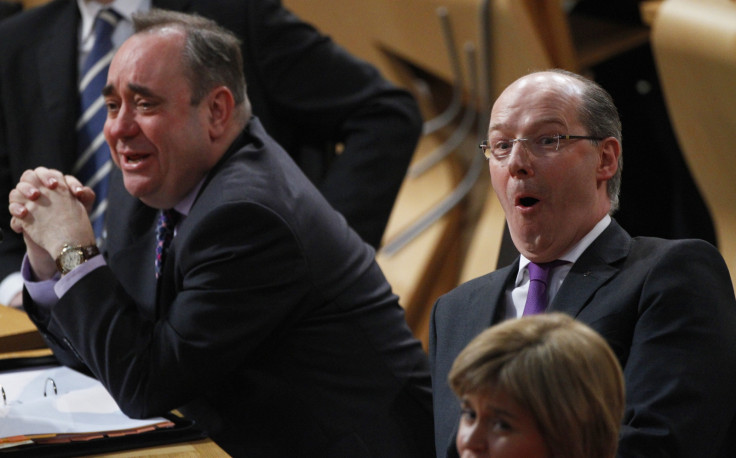Scottish Independence: SNP Holds Debt Ransom Against UK to Keep Currency

The Scottish National Party has warned that Scotland would not pay for its share of UK debt if it was not allowed to use the pound in the event of independence.
Scotland's Finance Secretary John Swinney confirmed the devolved government's stance live on TV during a referendum debate on the BBC.
"Alex Salmond said last night in the debate that our preferred option was a currency union in which we would take our fair share of the debt that has been built up over time," said Swinney, referring to SNP Salmond's debate with former Chancellor Alastair Darling on 25 August.
"But if the UK is going to seize the assets then it is welcome to all the liabilities and we won't be having any of them if that is how the UK behaves," he said.
Scotland has a £150bn (€189bn, $250bn) economy but owns £100bn worth of UK debt.
An independent Scotland keeping the pound has become a key point of contention in debates about breaking the union. In the latest clash Salmond reiterated that Scotland would keep Sterling whether the rest of the UK likes it or not - suggesting blackmail over the country's assets and liabilities if independence were to deprive Scotland of its currency.
However, former Lib Dem leader Charles Kennedy warned that by not paying its debt and using the pound without political and regulatory support, it would only hurt Scotland in the short to long term.
"You can call it what you like so let's call it a pound. But it is a pound that is not backed by a central bank. So if there is a run on the pound, unlike today, you are stuffed," said Kennedy.
Kennedy said if Salmond negotiates on the basis that Scotland would not shoulder its bit of the debt, on day one of independence "the international markets would have you for breakfast lunch and dinner".
Scottish people will vote in an independence referendum on 18 September, 2014, and will be asked the straight "yes/no" question: "Should Scotland be an independent country?"
© Copyright IBTimes 2024. All rights reserved.






